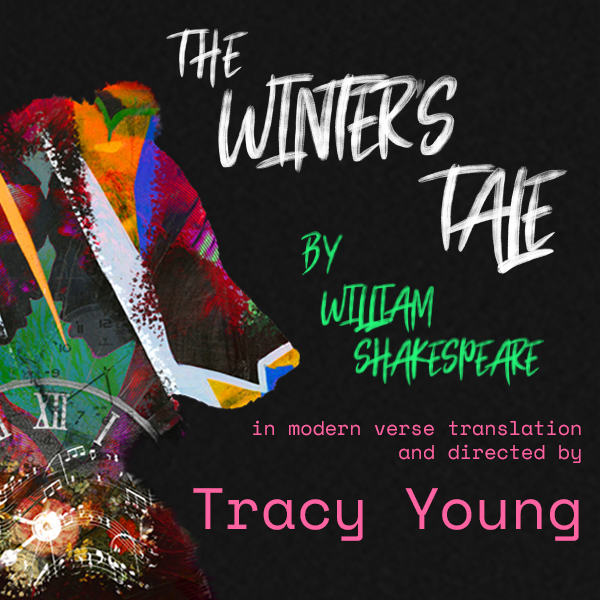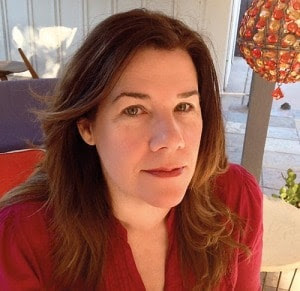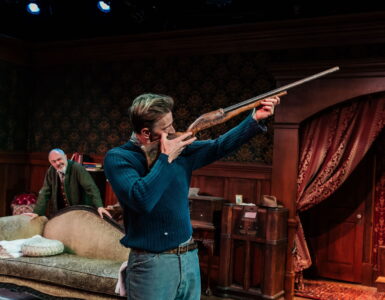
A stripped-down version of Shakespeare’s classic play (is it a drama? is it a comedy??) is coming to Skylight Theatre in May. Opening night is Thursday April 24, 2025, with performances on select Fridays, Saturdays, matinee on Sundays, and Monday eves. Runs through Saturday, June 14, 2025 Purchase tickets here.
About the play:
The Winter’s Tale is one of Shakespeare’s later works, probably written somewhere between 1609 and 1611. What makes it really stand out is its mix of dark drama and light-hearted comedy—it’s often called a “tragicomedy” because it doesn’t fit neatly into just one category. The mood of the play shifts dramatically, and that’s part of what makes it so fascinating.
The story itself is basically split into two very different halves. In the first part, things get pretty dark. Leontes, the king of Sicilia, suddenly becomes wildly jealous and accuses his pregnant wife, Hermione, of having an affair with his childhood friend Polixenes, who just so happens to be the king of Bohemia. Even though everyone around him insists that Hermione is innocent, Leontes doesn’t listen. He throws her in prison, where she gives birth to a daughter—but Leontes refuses to believe the child is his and orders the baby to be abandoned in the wilderness.
Things only get worse from there. Hermione is reported to have died (though there’s more to that), and their young son Mamillius dies from the stress and heartbreak. A prophecy from the oracle at Delphi reveals that Hermione was innocent all along, but Leontes only accepts the truth after it’s too late.
Then, suddenly, we’re in a completely different world. Fast forward sixteen years, and we’re now in Bohemia. That baby Leontes abandoned, named Perdita, has grown up as the daughter of a shepherd. She falls in love with Florizel—who, surprise!—is the son of Polixenes. What follows is a mix of romance, mistaken identity, disguises, and eventual revelations. The big emotional payoff comes when everyone is reunited, old wounds begin to heal, and Hermione, long thought dead, is revealed to be alive in a magical “statue” scene. It all ends on a surprisingly joyful and hopeful note.
The play dives into some big themes. Jealousy is at the heart of it, much like in Othello, showing how destructive it can be. There’s also a lot about redemption and forgiveness—Leontes spends years living with guilt, and the play explores how time can bring healing. The nature vs. nurture debate shows up in Perdita’s story: even though she’s raised by shepherds, her royal nature shines through. And speaking of time, there’s literally a character called Time who steps in to explain the 16-year jump between acts. Shakespeare was not afraid to break the rules.
There are a few unforgettable moments, too. Probably the most famous is the stage direction: “Exit, pursued by a bear”—yes, a literal bear chase on stage. And of course, there’s Hermione’s statue scene, which is both eerie and moving. Hermione’s trial earlier in the play is also packed with powerful speeches that show Shakespeare at his dramatic best.
As for the overall tone, The Winter’s Tale is hard to pin down. It starts off like a tragedy but ends with forgiveness, love, and renewal. That’s why it’s often grouped with Shakespeare’s “late romances,” along with The Tempest and Cymbeline—stories where the rough storms of life give way to calmer, more hopeful shores.

ArtsBeatLA interviewed Tracy Young, who adapted the play for this new production at Skylight Theatre.
What was the impetus to rework this particular Shakespeare play? What are its most appealing elements – to you and for audiences?
“The ambitious Play On! project asked a diverse group of playwrights to translate all of Shakespeare’s plays, and this one was my very first choice. I have loved this play for a long time because of the way it handles some of the things I care about most, like honesty and how people can get caught up in their own version of reality and hurt other people in the process. The play also has a lot to say about the way that love and time can bring about some kind of healing. The Winter’s Tale leaves us with a question about how we can be together and move forward after truly catastrophic conflicts. I’m fascinated by the resolve of the characters to stay together or to return to a family they’ve barely known. It’s an odd kind of hopefulness that I find appealing.”
A Winter’s Tale is celebrated for its unique blend of genres—tragedy, comedy, and romance. How do you manage this unusual combination in your adaptation?
“Each of these elements needs to be felt by the audience. The tragedy of the first half of the play has to be as affecting as the humor and romance in the latter half. But it’s also the case that these elements are all present at the same time, sometimes in the same scene. It is tragic when Leontes’ fury causes catastrophe, but we feel the damage of his rage more deeply when we also feel the strength of his love for his family and the impact of its loss. Tragedy and comedy are always paired in Shakespeare. I’ve always been drawn to stories that traverse the spectrum of these elements, tragedy and comedy, because to me this is what most truthfully reflects life in general, where the most painful and difficult realities exist alongside everyday moments of humor and surprising moments of joy. Shakespeare is a writer who always embedded humor in his stories, even in the plays that we would consider full tragedies. And vice versa for those plays we consider comedies. To me, that’s part of the reason why Shakespeare’s plays endure even now. We still recognize ourselves and the way we experience life in these plays.”
How does your background of working at the Actor’s Gang (and/or other companies) inform your approach with this play and production?
“As important as my work at the Oregon Shakespeare Festival has been to me and as much as I learned from those productions, it’s mostly the lessons I learned during my time at the Actors’ Gang and through years in smaller theaters around the country that influence my approach to this production. I like working with an ensemble that is ready to play, to think creatively about their roles and support each other and the work. My years at the Actor’s Gang taught me that an excellent ensemble and strong material is far more important than a large budget. Skylight Theatre has a history of bold choices and the production of new work, but this is the first Shakespeare play they’ve produced since their inaugural production of Romeo and Juliet. I love what happens when Shakespeare’s work, here translated for modern actors and a contemporary audience, returns to its roots as theater for the people. This is what inspired the Actors’ Gang, and I’ve brought that sensibility with me to Skylight.”
Do you have a signature style or preferred approach to staging live theater? If yes, how would you describe it?
“The performance style of the Actors’ Gang was influenced by commedia dell’arte, a form of theatre that emphasizes direct connection to the audience, and elements of commedia are often present in my work. It’s important to me that plays connect with audiences. Theater occupies a unique place in our culture as a live event that engages us in storytelling through characters and their conflicts. The live event of theater that puts everyone in the same physical space together is a special kind of a thing, more important now than ever before. I try to respect and highlight the fact that this provides an opportunity that is different from when people are watching stories through other media. It’s about forming a temporary, two-hour community of people sitting in the same room. It’s about having a shared experience with a bunch of other people and hopefully fostering connection and empathy. That is why we go to live events together; sitting in a space with people sharing an experience that highlights tensions and absurdities, love and anger, the great themes of everyday life. Just the act of doing that is a step toward communal understanding and growth. I try to be attuned to that aspect of it when I’m making a piece of theater.”
What can audiences expect from this new adaptation?
“My colleague and co-adaptor Lisa Wolpe and I worked hard to turn what is traditionally a very long play into a more compact work that connects with audiences without exhausting them. We made some bold choices, streamlining the play by eliminating some characters. This highlights other parts of the story and reshapes the way the story gets told. Shakespeare’s play is a clever and mature critique of a preoccupation with appearances and the way a rationalist approach to the world can make everything go awry. So we wanted this production to hit those notes without losing any of the rich and often painful sentiment that comes with the story. We also wanted to explore themes of trans identity that are often present in Shakespeare’s plays, and in particular present the character of Perdita as trans. Finally, we’ve added some musical elements because we have a talented cast with strong musical ability, and because this play is constructed to show us a path away from despair.”

“The Winter’s Tale”
| By William Shakespeare In Modern Verse Translation, Directed by Tracy Young Adapted by Lisa Wolpe and Tracy Young Produced by Gary Grossman and Armando Huipe for Skylight Theatre Company Associate Producer for Skylight, Logan Ellis Recommended for age 13 + Skylight Theatre – 1816 ½ North Vermont Ave.Los Angeles, CA. 90027 Parking information: skylighttheatre.org/plan-your-visit Previews: April 18, 19, and 23, 2025 Opening: 8:00pm Thursday April 24, 2025 Schedule: 8:30 pm Fridays and Saturdays, 3:00pm Sundays, 8:00 pm Mondays Runs through Saturday, June 14, 2025 |








Thanks for writing about The Winter’s Tale, ArtsBeatLA – I love that play!